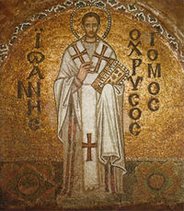L'inferno- The Pope mentions Hell in one line of a speech and everyone freaks.
For this reason he came to the Earth, for this reason I he will die on the Cross and the Father will raise Him up on the third day. Jesus came in order to tell is that he want us all to be with him in Paradise and that Hell, which is spoken little of in our times, exists and is eternal for those who close their hearts to His love. Also in this episode then we understand that our true enemy is our attachment to sin which can leads us to fail to live out our own existence. Jesus leaves of the adulterous woman with this warning: "Go and sin no more." He grants her pardon provided that from now on she sin no more. In an analogous episode, the one dealing with the repentant sinner which we find in the Gospel of Luke (7:36-50). He welcomes a woman who has repented and sends her off in peace. Here instead the adulterous woman receives pardon unconditionally. In both cases- for the repentant sinner and the adulterous woman the message is the same. In one it is emphasized that there is no pardon without repentance. Here it is made evident that only Divine forgiveness and His love received with a sincere and open heart give us the strength Evil and sin no more. Jesus' attitude thus becomes a model to follow for every community called to make love and forgiveness the beating heart of its life.
Per questo è venuto sulla terra, per questo morirà in croce ed il Padre lo risusciterà il terzo giorno. E’ venuto Gesù per dirci che ci vuole tutti in Paradiso e che l’inferno, del quale poco si parla in questo nostro tempo, esiste ed è eterno per quanti chiudono il cuore al suo amore. Anche in questo episodio, dunque, comprendiamo che il vero nostro nemico è l’attaccamento al peccato, che può condurci al fallimento della nostra esistenza. Gesù congeda la donna adultera con questa consegna: "Va e d’ora in poi non peccare più". Le concede il perdono affinché "d’ora in poi" non pecchi più. In un episodio analogo, quello della peccatrice pentita che troviamo nel Vangelo di Luca (7,36-50) Egli accoglie e rimanda in pace una donna che si è pentita. Qui, invece, l’adultera riceve il perdono in mondo incondizionato. In entrambi i casi – per la peccatrice pentita e per l’adultera – il messaggio é unico. In un caso si sottolinea che non c’è perdono senza pentimento; qui si pone in evidenza che solo il perdono divino e il suo amore ricevuto con cuore aperto e sincero ci danno la forza di resistere al male e di "non peccare più". L’atteggiamento di Gesù diviene in tal modo un modello da seguire per ogni comunità, chiamata a fare dell’amore e del perdono il cuore pulsante della sua vita.





















No comments:
Post a Comment